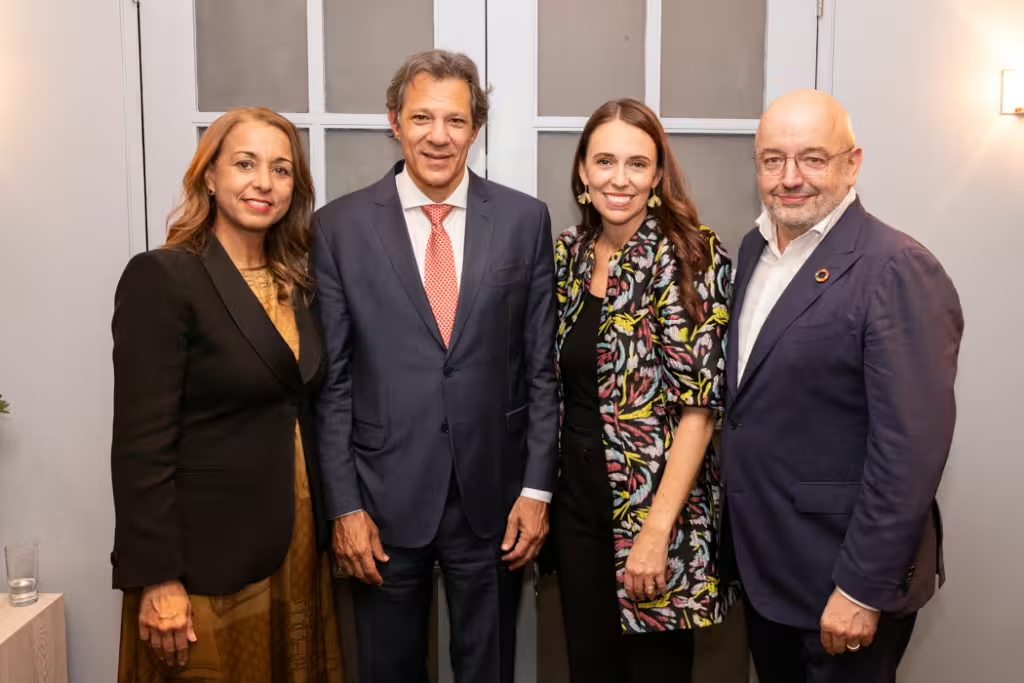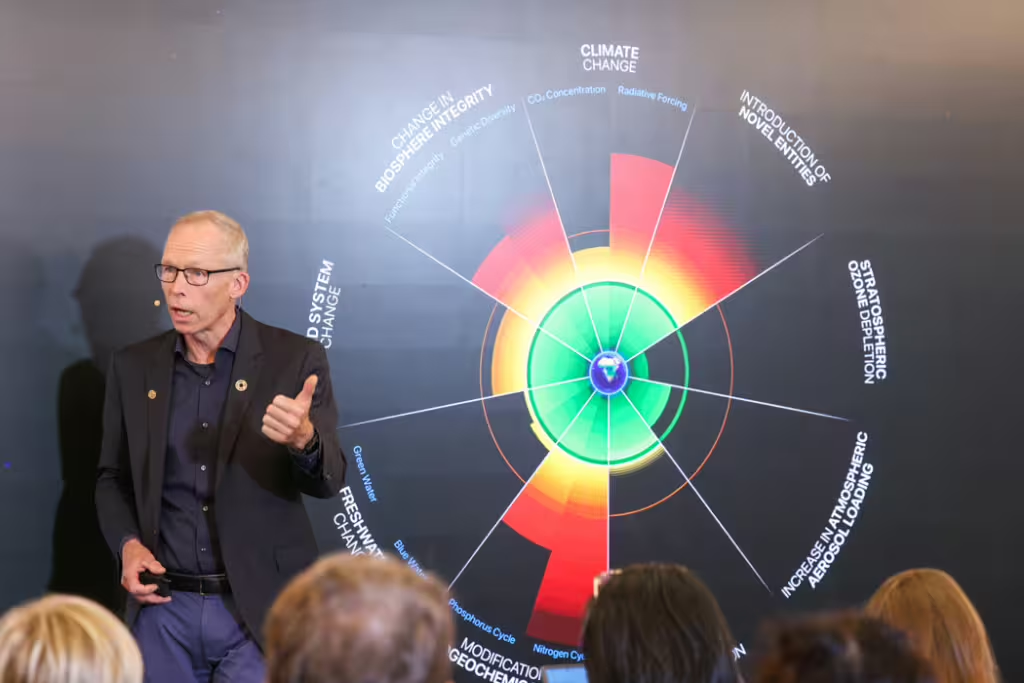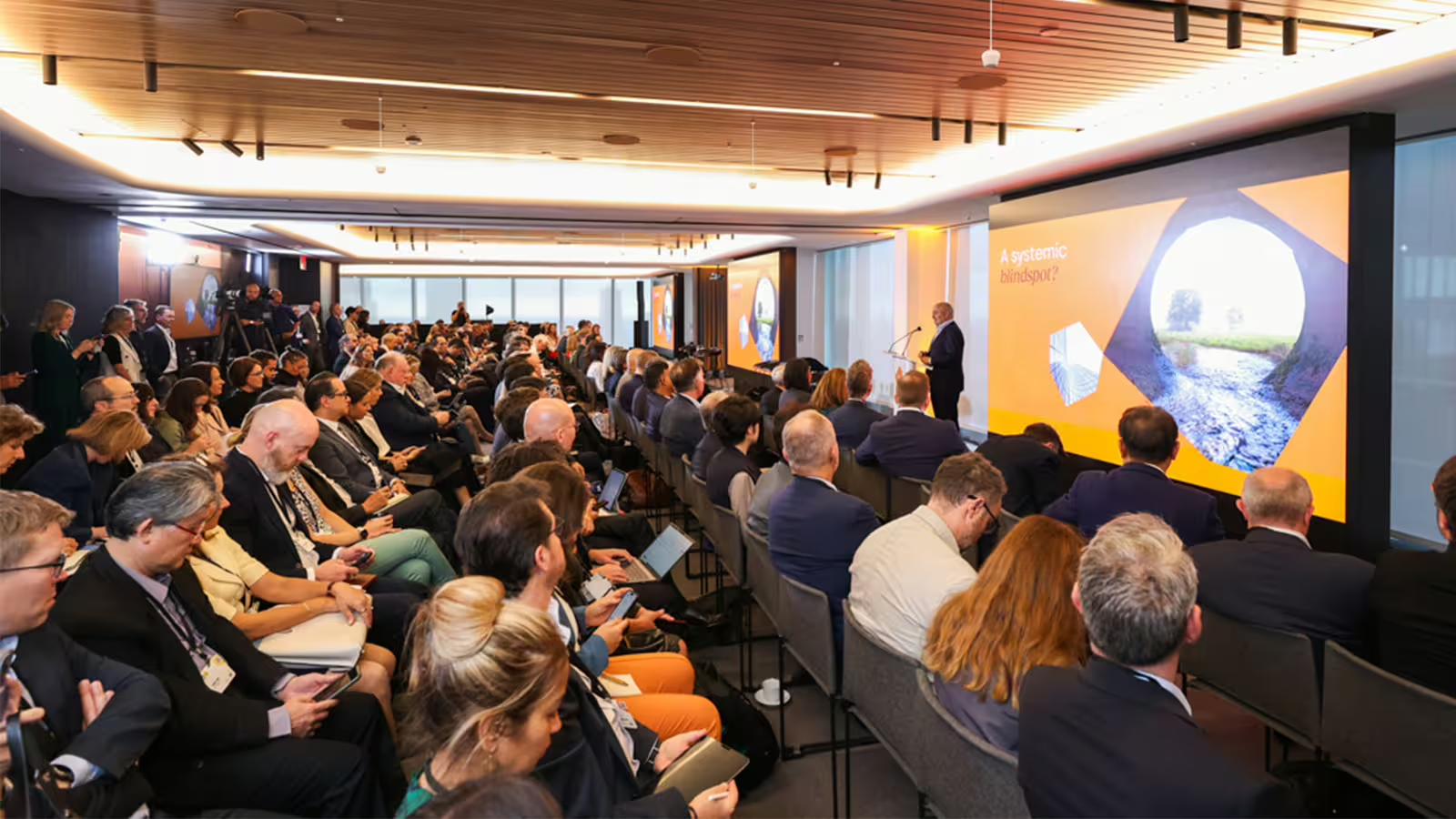Authors
Gavin Whitmore, Senior manager, Strategic Communications for Pathways
“It’s time”, said Helen Clarkson, CEO of Climate Group – hosts of Climate Week, 22-29 September 2024 – as she opened its 16th edition with a speech highlighting five key principles that “should underpin all our action”.
“It’s time to put people first, […] to pay up, […] to listen to citizens, […] to be honest with ourselves, […] and to have the difficult discussions about fossil fuels.”
A fitting call-to-action for an event-packed week that included the WBCSD Council Meeting, and more than 40 additional WBCSD-led dialogues and working sessions.
WBCSD kicked-off Climate Week with an evening of open dialogue with special guests, CEOs, business executives, and high-level representatives from policy, finance, academia and international organizations.
The evening heard that WBCSD’s power lies in the collective ambition and action of our member companies.

The business case for decarbonization was a central theme, with reminders of the importance of understanding its financial benefit, that maintaining status quo will increase cost of living, and that industry wide collaboration and alignment is key.
The important role of business in society was emphasized and business leaders were encouraged to inject a stronger sustainable business voice into the conversations of the Climate Week ahead.
The Council Meeting continued the conversation, it focused on corporate performance and accountability, addressed physical risks in value chains, and highlighted urgent challenges and opportunities for transformational change.
The first of two plenaries explored business visibility on climate impacts and risks with key takeaways that included the planet’s diminishing buffering capacity, the importance of business demonstrating to shareholders that risk is managed, and the necessity of quality data for measuring progress. The session emphasized the need for systemic change and better risk management and warned of the growing climate-risk insurance gap.

The second plenary focused on the power of collective action through WBCSD and launched the Center for Decarbonization Demand Accelerator (CDDA) which welcomed 26 Founding Member companies and recognized the findings of the Global Circularity Protocol for business (GCP) Impact Analysis that revealed the potential of the GCP to accelerate the circular economy transition by 11 years.
The rest of the inspirational event-packed week saw WBCSD deliver more than 40 sessions across New York City, engaging leaders from business, finance, policy and academia in action-oriented dialogue for climate, nature, and equity.
Dialogues and working sessions confirmed that we have moved into an era of pragmatism. There is growing recognition that while climate commitments and other long-term targets are important, it is collaboration and improved understanding of climate risk that will drive decarbonization and other progress at meaningful scale. By working together, we can create the unlocks that will lower the cost of capital for sustainable companies and restore trust in the system. And, a better business understanding of managing climate risk allows business to see beyond compliance to the opportunities of competitiveness.
We are grateful for the commitment and collaboration of our members that made our Council Meeting and engagement at Climate Week a success.
Our attention now turns to the COPs as we continue to work together with our members to bring the business voice and install sustainability at the core of competitiveness.

